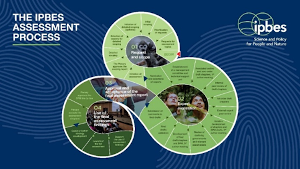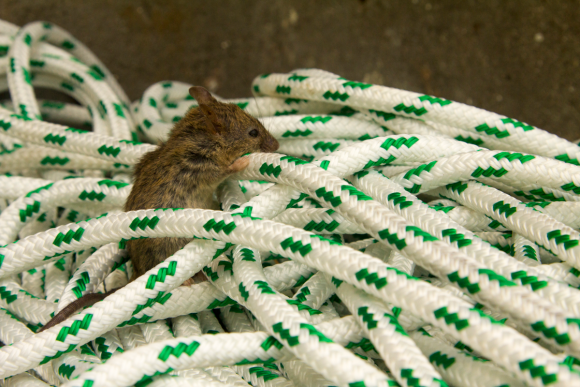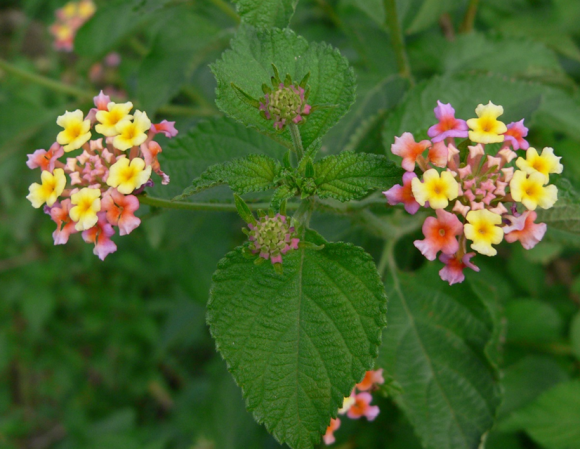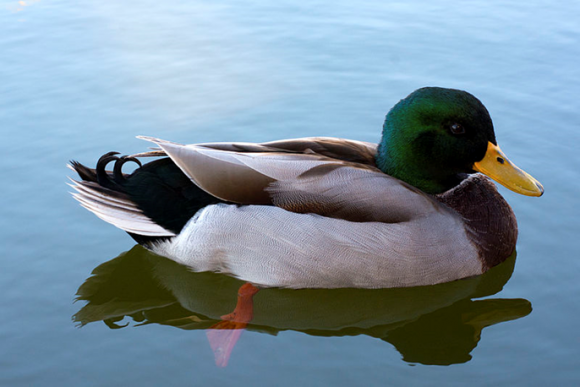13 September 2019 | By Maria Loreto Castillo (Centre for Invasion Biology) and Llewellyn Foxcroft (SANParks and Centre for Invasion Biology)
The first meeting of authors for a new global assessment of invasive alien species and their control for the Intergovernmental Science-Policy Platform on Biodiversity and Ecosystem Services (IPBES), was held recently in Japan. About 70 authors from more than 35 countries participated in the meeting from 19-23 August 2019 in Tsukuba, Japan.
The Centre for Invasion Biology (C·I·B) was represented at the meeting by six affiliates: Scientific Advisor Prof Laura Meyerson (University of Rhode Island), C·I·B Core Team Members Prof Llewellyn Foxcroft (SANParks) and Dr Sebataolo Rahlao (SANBI), Research Associate Dr Ryan Blanchard (CSIR), Research Fellow Prof Sven Bacher (University of Fribourg) and PhD candidate Maria Loreto Castillo (C·I·B). Maria Loreto Castillo was selected as one of the 12 IPBES fellows who will participate in the assessment, receiving mentoring from leading experts and attending training workshops. Although not present at the meeting, an additional C·I·B Associate, Prof Petr Pyšek (The Czech Academy of Sciences) is also one of the assessment authors.
The IPBES, established in 2012, is an independent intergovernmental body comprising of 132 member States. IPBES conducts objective scientific assessments to provide policy makers with state of the art knowledge regarding the planet’s biodiversity, ecosystems and the contributions they make to people. This is done by strengthening the science-policy interface for biodiversity and ecosystem services in order to understand the dynamics in human-nature interactions.
The objective of this new global assessment of invasive alien species and their control is to assess, amongst others, 1) the species that affect biodiversity and ecosystem services, 2) the extent of the threat posed, 3) the impacts on agrobiodiversity and food, human health and livelihood security, 4) the major pathways for and drivers for their introduction and spread, 5) the global status of and trends, 6) the level of awareness, and 7) the effectiveness of control measures and associated policy options that could be employed to prevent, eradicate and control invasive alien species.
At this first meeting the assessment co-chairs, Profs Anibal Pauchard, Helen Roy and Peter Stoett, and the authors were introduced to the IPBES process and the scope of the assessment of invasive alien species, and started the work on the assessment report. The fellows also had a capacity building workshop before the author meeting.
The seven C·I·B affiliates will be involved in diverse components of the assessment and will be collaborating with more than 70 scientific experts from around the world.
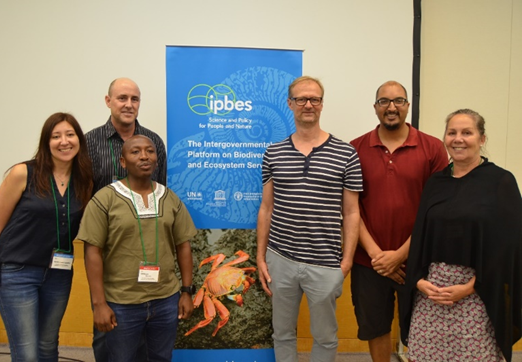
The assessment is planned for the next three to four years, with this meeting the first of a series of three meetings. By the end of the process, a full assessment report and a Summary for Policy Makers will be approved by the Plenary and all member States.
“IPBES is often described as the ‘IPCC for biodiversity’, and this assessment will be one the most important global assessments for invasive alien species with potentially far-reaching implications” said Prof Foxcroft.
“The spread of invasive species is one of the key drivers behind the global loss of biodiversity. The IPBES assessment of invasive alien species and their control will provide decision-makers with the best evidence on their prevalence, drivers, impact and options for control,” Maria Loreto Castillo adds.
For more information on IPBES: www.ipbes.net
